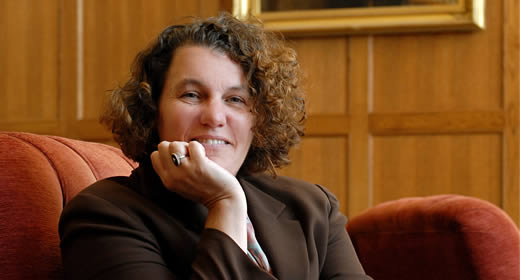
In the New York Times, Susan Dynarski lays out the case for states to offer free, and universal, college admission testing.
“A child born into a high-income family is six times as likely to earn a college degree as one who is poor,” writes Dynarski, citing research she has participated in. Increasingly, she says, researchers are finding administrative hurdles can be a significant barrier.
Completing complicated financial aid forms, requesting letters of recommendation, and registering for college entrance exams--all non-academic hurdles that say nothing about a student’s ability to succeed in college--can discourage many low-income students, particularly first-generation students whose parents aren’t familiar with the process, from applying to college. As such, eliminating just one of those hurdles can have a profound effect.
Dynarski cites a new paper by Ford School doctoral alumnus Joshua Hyman (PhD ‘13), which found that when the state of Michigan began requiring all public school juniors to take the ACT ten years ago, “the share of high school graduates taking a college entrance exam rose immediately to nearly 99 percent from 54 percent.” That growth, Dynarski continues, “was even sharper among low-income students, of whom only 35 percent were previously taking the test.”
Dynarski shares her own story of missing the PSAT to illustrate. "The vice principal told my mother that I could safely skip the test," she writes. "I was not on the honors track, and suspect my school didn't consider me a prospect for scholarships or top schools. The story stops there for most low-income students. But I was lucky," she writes. "Eventually I took the SAT, scored well, and ultimately received a bachelor's degree from Harvard."
“Universal exams cannot, by themselves, close gaps between poor and rich students in college attendance,” admits Dynarski. But she argues that such testing can “help put more smart disadvantaged students on the radar of schools, mentors, and advocacy groups that can help them.”
Twenty-five states now require that all students take the ACT or SAT exams, writes Dynarski--and in many of these, including Michigan, the test is administered free of charge during the school day.
Susan Dynarski is a professor of public policy at the Gerald R. Ford School of Public Policy, a professor of education at the University of Michigan's School of Education, and a professor of economics at the University of Michigan's College of Literature, Science, and the Arts. She is co-founder and co-director of the Ford School’s Education Policy Initiative, which engages in applied, policy-relevant research designed to improve educational achievement and outcomes.